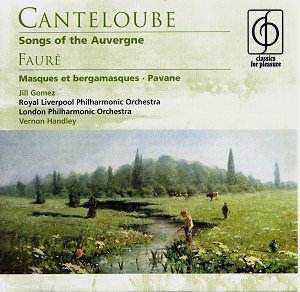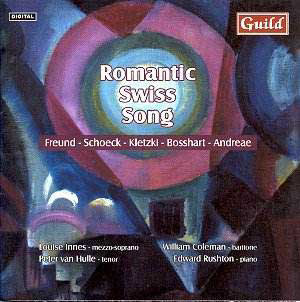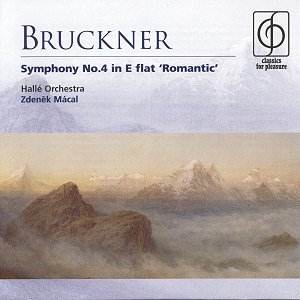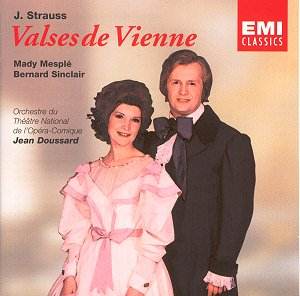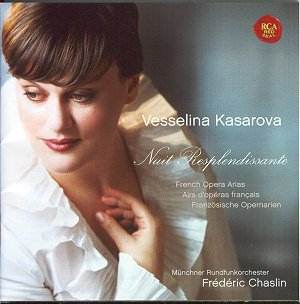 Composer: Giacomo Meyerbeer, Hector Berlioz, Charles Louis Ambroise Thomas, Charles Gounod, Edouard Lalo, Camille Saint-Saëns, Jules Massenet
Composer: Giacomo Meyerbeer, Hector Berlioz, Charles Louis Ambroise Thomas, Charles Gounod, Edouard Lalo, Camille Saint-Saëns, Jules Massenet
Works: Les Huguenots: Non, vous n’avez jamais, je gage; Le Prophète: Donnez, donnez pour une pauvre âme; Mignon: Connais-tu le pays; Sapho: Où suis-je, Ô ma lyre immortelle; Roméo et Juliette: Depuis hier je cherche en vain mon maître; Cinq-Mars: Par quel trouble profond suis-je ici ramenée; Nuit resplendissante; Le Roi d’Ys: De tous côtés j’aperçois dans la plaine, Lorsque je t’ai vu soudain repaître; Samson et Dalila: Amour, viens aider ma faiblesse; Le Cid: De cet affreux combat je sors l’âme brisée; Pleurez, pleurez mes yeux
Performers: Vesselina Kasarova (mezzo-soprano), Munich Radio Orchestra/Frédéric Chaslin
Recording: 9-13.07.2001, Bavarian Radio Studio 1, Munich
Label: RCA
Vesselina Kasarova’s latest recording, a collection of French opera arias, represents a significant exploration of the mezzo-soprano repertoire, drawing from the rich well of 19th-century operatic traditions. The selection spans a diverse array of composers, showcasing the evolution of the mezzo-soprano’s role from the dramatic strains of Meyerbeer and Gounod to the nuanced lyricism of Massenet and Saint-Saëns. Each aria is not only a technical showcase but also a vivid tableau of emotional expression, revealing the intricate layers of character and narrative embedded within the music.
Kasarova’s performance is marked by a remarkable sensitivity to the stylistic demands of each piece. In Meyerbeer’s “Non, vous n’avez jamais, je gage” from Les Huguenots, her agility is immediately apparent, with clean runs and an expressive interpretation that captures the character’s defiance. The Berlioz aria “Adieu, fière cité” from Les Troyens opens with a dramatic recitative that she imbues with a palpable sense of dread, transitioning seamlessly into a lament that showcases both her vocal control and emotional depth. Kasarova’s ability to convey the underlying drama of the text is particularly noteworthy; where some singers might settle for mere vocal beauty, she digs deeper, illuminating the character’s psychological landscape.
The recording quality, managed by RCA, is exemplary, allowing the listener to fully appreciate Kasarova’s vocal nuances. The balance between the orchestra and voice is expertly handled by conductor Frédéric Chaslin, who supports the singer’s interpretations without overpowering her. The Munich Radio Orchestra provides a lush backdrop, particularly in the sweeping orchestral phrases of the Lalo aria “Lorsque je t’ai vu soudain repaître,” where the instrumental color reflects the lyrical intensity of Kasarova’s voice.
Comparatively, while other mezzo-sopranos such as Marina Domashenko offer commendable interpretations of similar repertoire, Kasarova’s artistry shines through with a distinctive communicative power. Her rendition of the Saint-Saëns aria “Amour, viens aider ma faiblesse” stands out for its blend of vocal beauty and psychological insight, capturing the essence of longing and despair with a nuanced approach to phrasing. The thrilling high notes she delivers are particularly striking; they are not merely technical feats but serve as integral expressions of the emotional arc of each aria.
Kasarova’s choice to embrace the mezzo-soprano role, despite her ability to access a soprano range, allows her to explore the full spectrum of her vocal capabilities and artistry. This recording not only solidifies her position in the realm of French opera but also exemplifies her understanding of the historical context surrounding these works, contextualizing them within the traditions of their time while bringing fresh interpretations to the fore.
Kasarova emerges as a compelling interpreter of this repertoire, blending technical prowess with deep emotional engagement. Her artistry in this recording is a testament to her growth as an artist, and the expressive depth she brings to each aria marks her as one of the leading figures in today’s operatic landscape. This album is an essential listen for anyone wishing to delve into the world of French opera and the remarkable capabilities of the mezzo-soprano voice.
